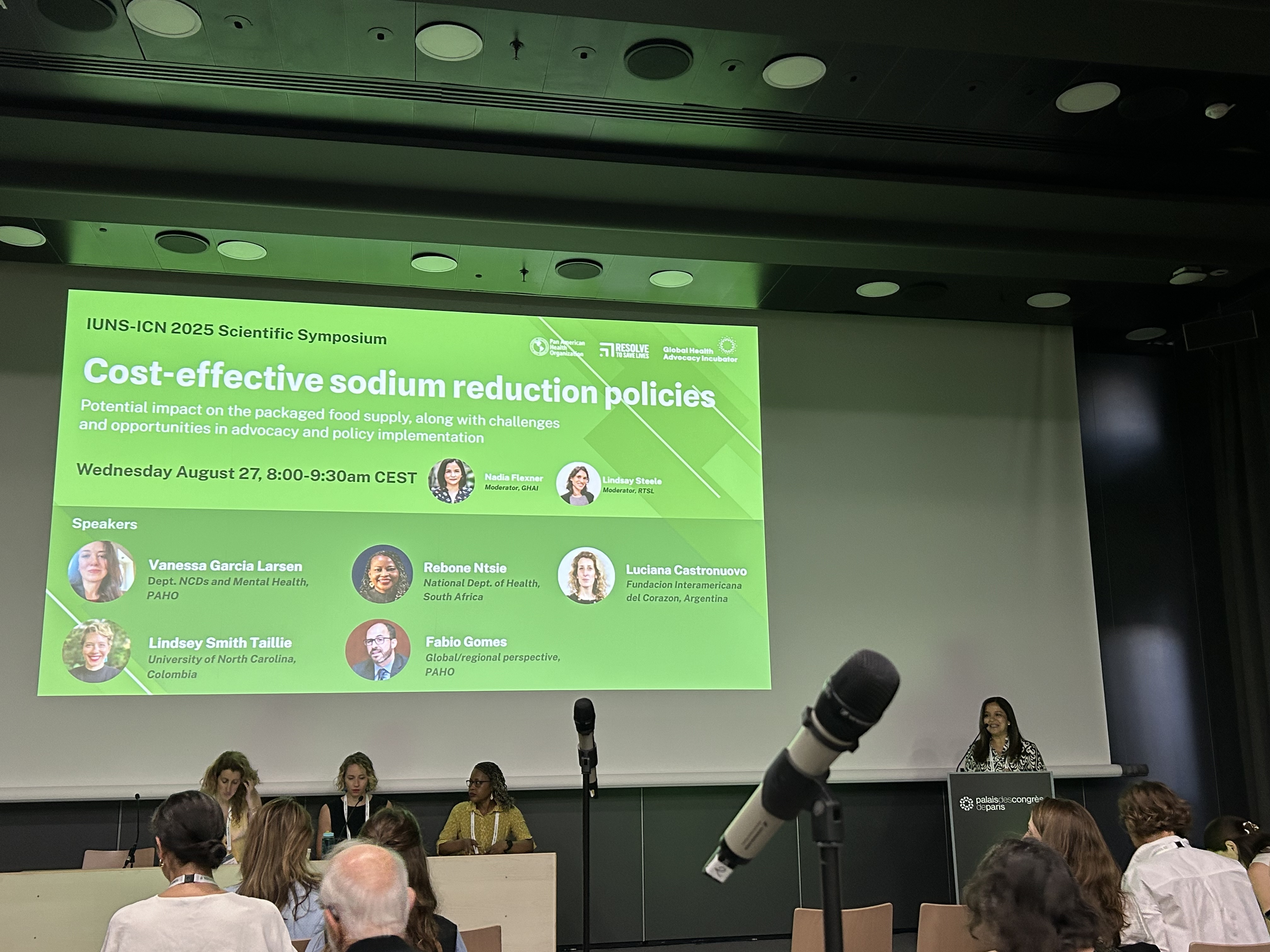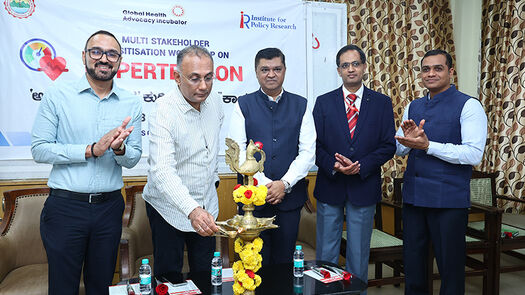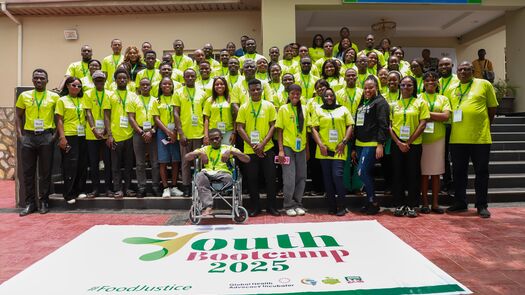November 25, 2025
September 30, 2025
Global Momentum for Sodium Reduction: Policy Lessons from Around the World

Sodium hides in almost all packaged foods we eat, driving hypertension and heart disease. Yet it doesn’t have to be this way: global experts have shown sodium reduction policies can effectively protect public health. These policies include sodium targets, front-of-package warning labels (FOPWL), taxation, school food standards and marketing restrictions. Many countries have adopted isolated best practice policies, but few have implemented them together as part of a comprehensive strategy.
In August, at the 23rd International Congress of Nutrition in Paris, the Global Health Advocacy Incubator (GHAI) joined Resolve to Save Lives and the Pan American Health Organization (PAHO) to co-host a scientific symposium to examine the feasibility of comprehensive policy packages to reduce sodium in the food supply and protect public health. The session sought to answer two pressing questions for governments worldwide: How can cost-effective sodium reduction policies transform the packaged food supply, and how can advocates overcome implementation obstacles, like industry resistance, limited enforcement capacity or shifting political priorities?
Speakers presented on experiences in South Africa, Argentina, Colombia and data from the UK, where countries have implemented sodium targets, with some as part of comprehensive policy packages. They shared fresh data and hard-won lessons, offering a blueprint for action.
Five Takeaways for Global Advocates:
- Layered policies multiply impact: Pairing mandatory sodium targets with FOPWL reduces sodium far more than either measure alone. A UK modeling study showed up to a 40% drop in the sodium content of food products when both policies are implemented together.
- Regulation is practical and lifesaving: South Africa’s sodium targets policy has already cut intake by 0.22 g/day —11% of the World Health Organization's recommended 2 g daily intake — without any consumer effort, making the impact remarkable and translating into measurable blood-pressure reductions and thousands of deaths averted.
- Monitoring and enforcement are critical: Strong regulatory capacity, clear penalties for violations, label reviews and lab testing ensures compliance and sustains policy progress.
- Civil society keeps momentum alive: From Argentina’s high compliance rates to Colombia’s broad coalition, advocates and academic partners are indispensable for resisting industry pushback and safeguarding laws after passage.
- Comprehensive strategies protect health: Combining sodium targets with FOPWL, taxation, school food standards and marketing restrictions sends consistent signals to consumers and manufacturers and captures ultra-processed foods that might otherwise evade regulation.
Unsolved Questions Remain
Despite these successes, key challenges and questions remain:
- Industry resistance: How can governments and advocates best protect sodium policies from legal challenges, lobbying and the creation of loopholes?
- Policy sequencing: When political systems make omnibus legislation (a single legislative package containing multiple, often diverse, topics or provisions that are voted on together) difficult, what is the most effective order for rolling out sodium targets, FOPWL, marketing restrictions, school food standards and taxes?
- Monitoring innovation: What cost-efficient methods, digital tools, regional labs or cross-agency enforcement can strengthen long-term policy compliance, especially in low-resource settings?
From Science to Strategy: Tackling the Advocacy Challenge of Sodium Reduction
The symposium highlighted that sodium reduction is not only a scientific imperative but also an advocacy challenge. The message was unequivocal: mandatory sodium targets and FOPWL are stronger together. To translate research into action, GHAI works to support civil society partners in countries from Asia to Latin America, proving that sustained, evidence-driven campaigning backed by legal expertise and community voices can move policies from paper to practice. In line with global recommendations for sodium reduction, we support advocacy efforts to:
- Implement mandatory FOPWL to help consumers identify unhealthy food.
- Regulate sodium content in manufactured food.
- Restrict marketing of unhealthy food and beverages.
- Enact taxes on sugary drinks and unhealthy foods.
- Ban marketing and availability of unhealthy food and beverages in schools to ensure healthy food environments.
With simultaneous implementation of multiple effective policies, vigilant monitoring and engaged civil society, governments can reshape the food environment, improve health and save lives.
Related News
View All NewsNovember 19, 2025
India’s Karnataka State Takes a Bold Step Toward Early Hypertension Detection
November 7, 2025



